Why Were Cigars a Symbol of Corporate Success?
All about people, power, and their tool of the trade: cigars.
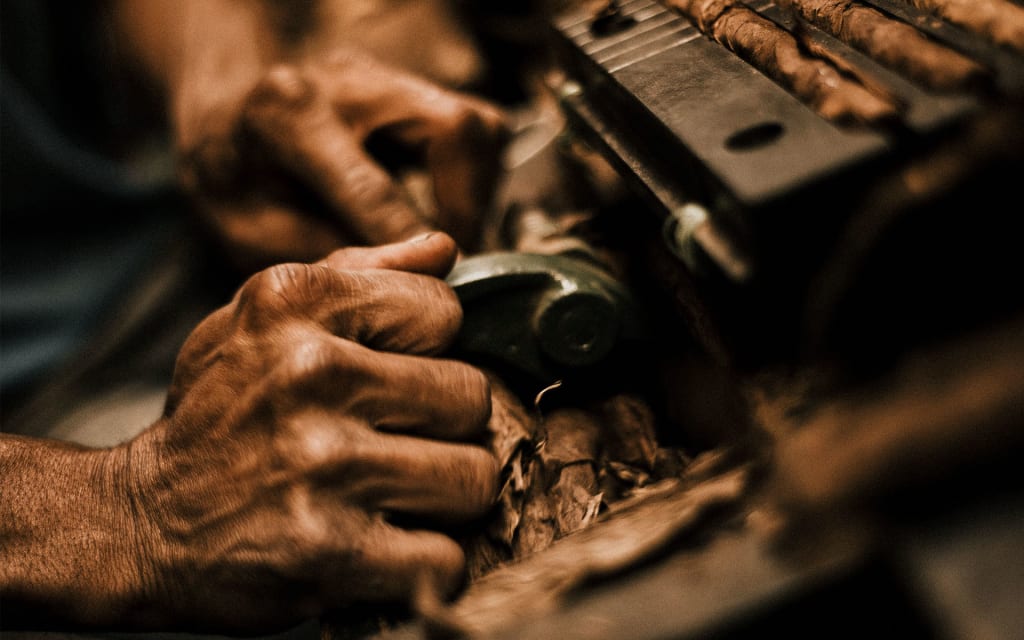
Winston Churchill, John F Kennedy, Bill Clinton, Stalin and Che Guevara – political icons on both sides of the divide – are all well known for their companion piece, the cigar. Men of wealth, and power, have historically indulged in the consumption of fine handcrafted cigars imported from Cuba and Central America. Membership to this club however, has not been the sole domain of politicians, gangsters and movie stars. Cigars have also become an indulgence for the super wealthy, powerful ad men, corporate lawyers and business magnates. In a dog-eat-dog world, where very few rise to the top of the corporate ladder, cigars have become synonymous with the penultimate success.
Some of the most successful corporate identities of the Twentieth Century including Ron Perelman, Al Lerner, and William S.Paley, all highly successful and wealthy businessmen, are partial to a superior cigar. In fact, Paley has his very own cigar company, La Palinas.
But just why do people associate corporate success with cigar consumption?
Historical Roots of Corporate Success and Cigar Consumption
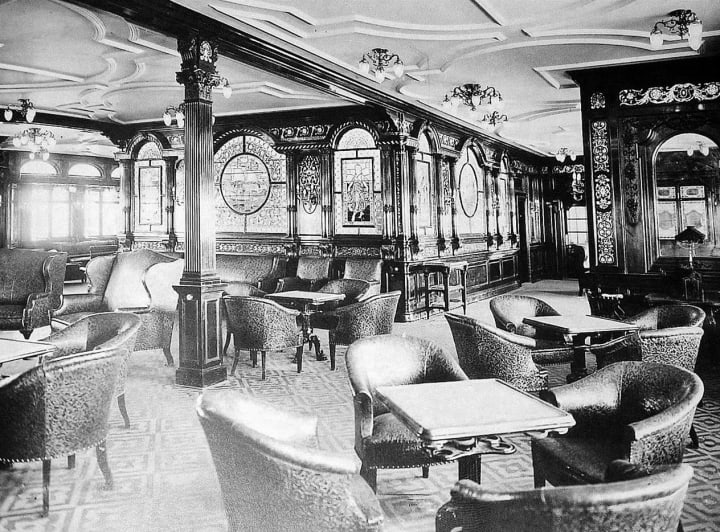
The Titanic's Smoking Room
Cigars have traditionally been viewed as expensive, imported, hand-crafted items that corporate and political leaders consume. Whilst they may have been around for hundreds of years, cigars became a symbol of wealth, privilege and success during the late 19th and 20th centuries. Smoking rooms at the turn of the century became places for English aristocrats to retire to after dinner. Men and their (male) guests retreated to the confines of these rooms to discuss the business of the day and any political concerns they might have. Expensive cigars were accompanied by an equally expensive glass of whisky or cognac. From this time forward, power and success became inextricably linked with smoking well-blended imported cigars.
A similar setup was found in gentlemen’s clubs and in other locations away from the house. In 1912, provisions were made for a smoking room to be included on the ill-fated Titanic. Records show that 8000 cigars were ordered for this First Class gentleman’s lounge - a room to be used solely by the privileged and wealthy. Powerful business magnate Colonel John Jacob Astor IV and industrialist Benjamin Guggenheim were two successful men who had the luxury of using this service. The wealthy landed gentry and captains of industry could discuss business and politics, while smoking the cigars provided.
Connoisseurship and Membership
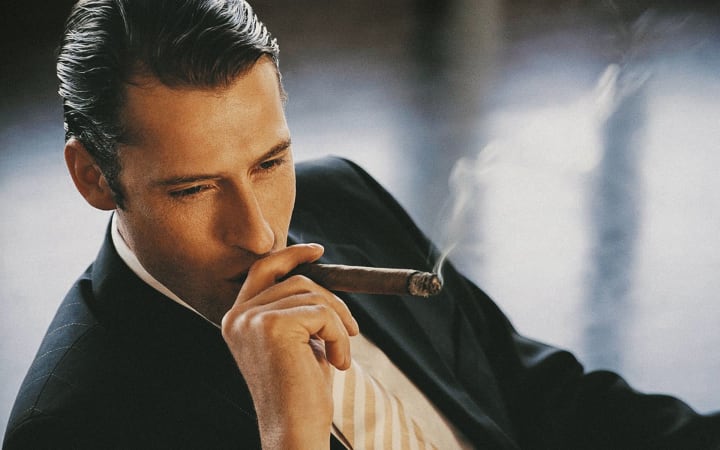
Connoisseurship and membership to private clubs and elite social circles is only accessible to a few. Making oodles of cash in stocks and bonds, or selling advertising to high ranking companies, has the ability to increase your purchasing power. Smoking an exclusive brand of cigar is symbolic of membership, social position and level of corporate success. Cigars have become emblems of status and success as much as designer clothing, luxury cars and zip codes. While new groups of aficionados are always emerging, it is only those with seriously deep pockets that can shell out the $4500 price tag needed to purchase a single King of Denmark cigar or the $125,000 price tag on a box of 20 52-inch ringed Gurkha Black Dragons.
Economic Growth and Downturn

Cigar popularity during the Twentieth Century linked to the market trends in which corporate organizations existed. The collection of data has shown that when the markets were trading well for Corporate America, and the rest of the World, cigar popularity soared. The growth of cigar consumption has been measured alongside these market forces. During periodic decline of the market, corporate affairs worsened and cigar consumption reduced. When the market recovered, especially in times of a boom economy, cigar consumption increased. Studies show times of reduced consumption can be seen after the Wall Street Crash in 1929, Black Thursday in 1987, and again with the credit crunch in the late 2000s.
Evidently if the corporate leaders were making money, gaining wealth, power and social position, the cigar was never far away. Wealth often goes hand in hand with outward displays of purchasing power and exclusivity. The most significant fall in cigar consumption by corporate players happened with the 1929 crash. With Wall Street businesses going bust, the Great Depression ensued - creating a global effect. The market for cigars also drastically crumbled in response to the state of corporate affairs both in the US and around the world.
Hollywood – the Caricature of the Corporate Mogul
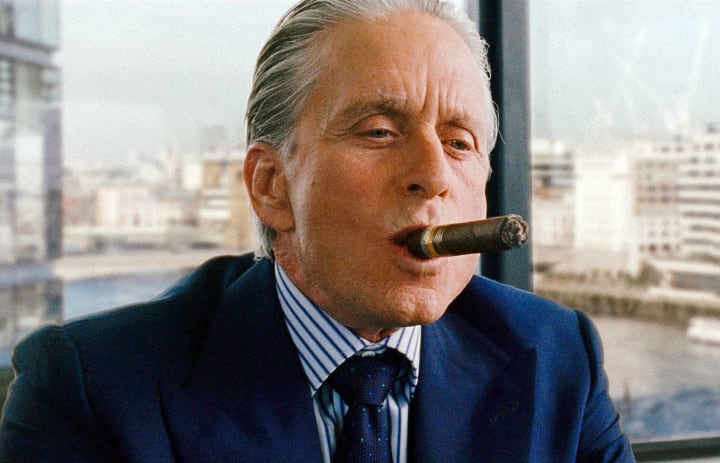
Michael Douglas as Gordon Gekko in Wall Street
Hollywood has also contributed to this image of the business leader whose success is highlighted through the consumption of cigars. One only need look at Michael Douglas’ character Gordon Gekko in Wall Street (1987), who famously claimed that “Greed is good.” His character’s cigar smoking helped signify his Fat Cat persona and archetypal “don’t mess with me” attitude. Gekko’s character captured the lifestyle of one of the most extravagant periods of conspicuous consumption where corporate leaders smoked premium cigars and indulged in all sorts of excess, as a mark of their success.
In this cutthroat world, characters are often portrayed with the necessary ruthlessness and determination needed to sit at the top of the corporate ladder. Cigars act as a brometer that characters have achieved this goal. Their secured wealth and position allows these characters to throw money at extravagant and luxury goods, proving they have become something bigger and better than everyone else in the film. Hollywood uses the cigar as a corporate accessory in the same manner as the Breitling timepiece, bespoke suit, handmade Italian shoes and Mont Blanc Ball Point pen. Corporate kingpins on film are often seen smoking their cigars in their impressive boardrooms, top floor offices, luxury yachts or private jets. Cigars are an accessory on a long list of objects that signify control, power and a bank account big enough to buy things mere mortals can’t afford, often just because they can.
Madmen’s Don Draper is another prime example of Hollywood depicting the corporate leader with a cigar in his hand. Again, Draper is a highly successful advertising executive that fits into the narcissistic flawed character mold, and is ready to do anything to reach the top. Smoking expensive cigars adds to his image of success.
Add to this corporate world the litigators and attorneys of Crane Poole and Schmidt, in ABC’s award winning Boston Legal. Each episode draws to a close when Denny Crane and Alan Shore step out onto the office terrace -a modern equivalent to the Victorian smoking room. Highly successful, extremely wealthy and incredibly decadent, Crane and Shore discuss politics and big business, along with their own narcissistic ramblings. This is all washed down with a glass of expensive Scotch and their ubiquitous cigars.
Cigars in Advertising
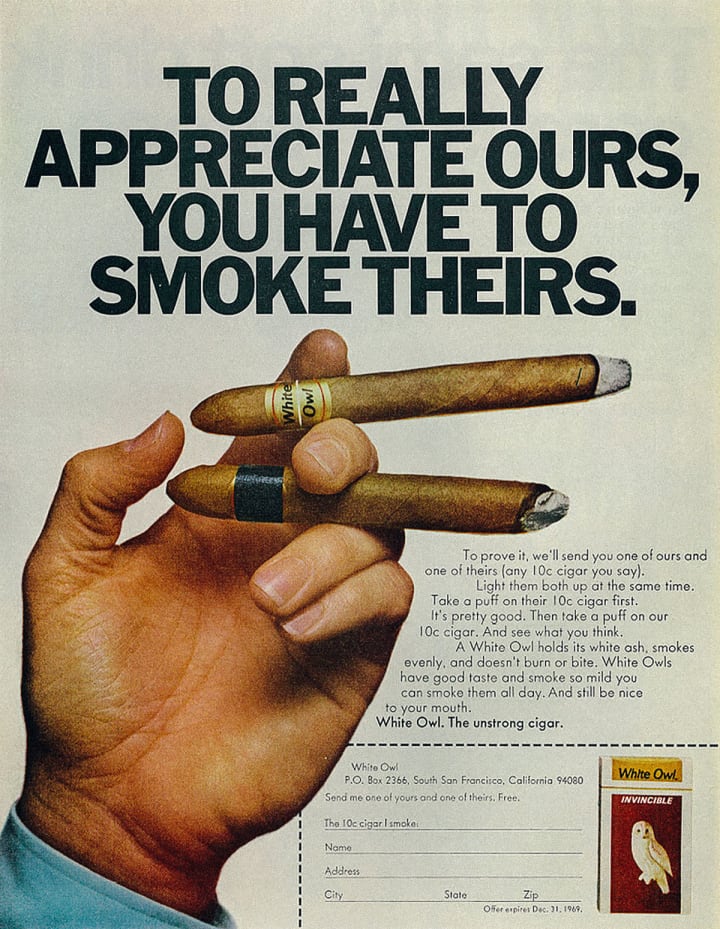
Vintage cigar ad from 1969
Advertising has also had a hand in perpetuating the image of cigars as a symbol of corporate success. The Cuban cigar industry had been struck a serious blow in 1964 when President Kennedy enforced a trade embargo on Cuba. Cuban cigars were illegal in the U.S. from that point, but not before JFK had secured 1200 cigars for his own personal use. Marketing executives, however, still had a variety of products from other countries to sell. Premium cigar brands advertised their products to the successes of those working in the business world. From the 1970s until the late 1990s, advertising campaigns worth millions of dollars were devised to market premium brands like Macanudo to successful corporate executives with deep pockets. Marketing campaigns were placed alongside advertisements for luxury cars, expensive jewelry, premium casinos and resorts, expensive watches and designer clothing. Targeting advertising campaigns in this way secured the image of the corporate high flyer and their love for the cigar. If you couldn’t smoke a Cuban cigar, according to advertisers, you could certainly try other similarly luxurious brands.
Today, magazines like Cigar Aficionado continue to link success, wealth and corporate culture to the smoking of premium cigars. Aficionado has placed the faces of many famous politicians, rock stars, actors and athletes on the front cover of their magazine. Business tycoons like Ron Perelman, J.P Morgan and Edgar Bronfman Jr have also graced their covers. Advertising, celebrity endorsement and the inclusion of powerful figures smoking cigars has helped to create an image of success, wealth and celebrity around the elite sportsperson, actor and corporate titan.
Cigars have become, and continue to be, a visual sign of wealth, luxury and success in the corporate world, despite the cautions delivered by health professionals. Links to Hollywood further cement this idea. Jack Nicholson, Arnold Schwarzenegger, butt kicking Wolverine Hugh Jackman and none other than Mr. Gordon Gekko himself, Michael Douglas, have all been featured in this magazine because of their cigar smoking habit. Successful men enjoying the pleasure of a good cigar.
Cigars have have been viewed for hundreds of years as a symbol of corporate success and power. Through historical precedent, economic markets, endorsement by powerful people and celebrity icons, cigars continue to be one of the most visible and prominent signs for those who have achieved the ultimate success in their chosen field.
About the Creator
Frank White
New Yorker in his forties. His counsel is sought by many, offered to few. Traveled the world in search of answers, but found more questions.
Enjoyed the story? Support the Creator.
Subscribe for free to receive all their stories in your feed. You could also pledge your support or give them a one-off tip, letting them know you appreciate their work.





Comments
There are no comments for this story
Be the first to respond and start the conversation.